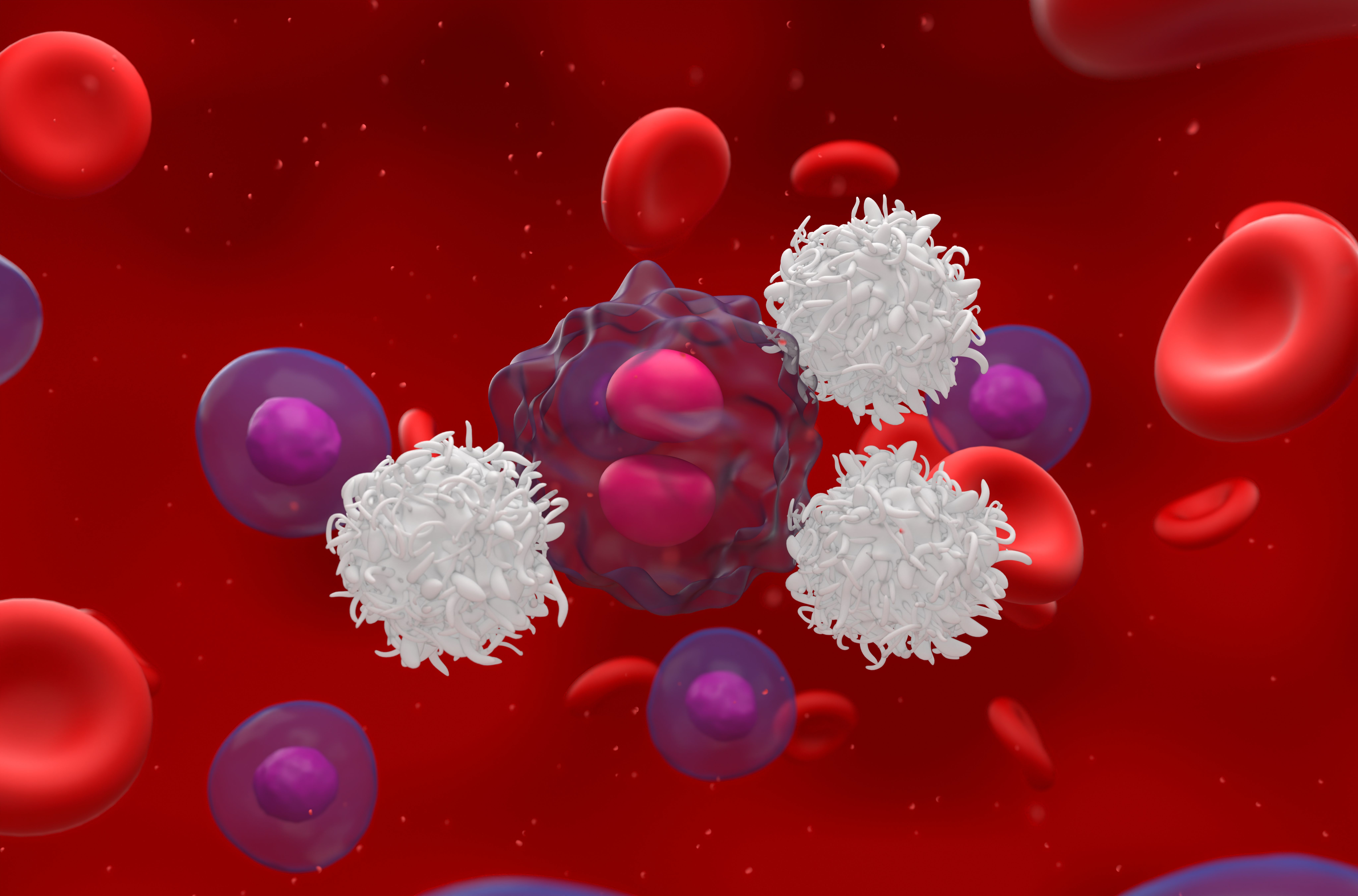Brentuximab Vedotin/Nivolumab Appears Well-Tolerated in Early-Stage cHL
In part C of the phase 2 SGN35-027 trial evaluating brentuximab vedotin, nivolumab, doxorubicin, and dacarbazine in patients with classical Hodgkin lymphoma, fewer than half of patients developed primarily low-grade peripheral neuropathy, and no cases of febrile neutropenia were observed.
Image Credit: © LASZLO [www.stock.adobe.com]

The combination of brentuximab vedotin (Adcetris) with nivolumab (Opdivo) and standard chemotherapy agents, doxorubicin and dacarbazine was well-tolerated as a frontline treatment for patients with early-stage classical Hodgkin lymphoma (cHL), according to updated efficacy and safety results from part C of the phase 2 SGN35-027 trial (NCT03646123).1
According to data from the trial, fewer than half of patients developed primarily low-grade peripheral neuropathy, and there were no cases of febrile neutropenia reported among patients.
Further results will be presented at the 17th International Conference on Malignant Lymphoma in Lugano, Switzerland on June 13-17.
“With teens and young adults primarily impacted by Hodgkin lymphoma, our goal is to develop curative treatments that improve survival while also reducing toxicity,” said Jeremy Abramson, MD, director, Jon and Jo Ann Hagler Center for Lymphoma at Massachusetts General Hospital and principal investigator of the trial, in the press release. “The targeted agents of brentuximab vedotin and nivolumab have distinct mechanisms of action and demonstrated promising activity and safety in this early study; the omission of bleomycin and vinblastine chemotherapy likely contributed to the absence of certain adverse events.”
Brentuximab vedotin plus adriamycin, vinblastine, and dacarbazine is a standard of care treatment for patients with advanced-stage cHL in the United States. Brentuximab vedotin is also approved for 7 indications in the United States, as well as 5 indications in Europe.1
In the ongoing open-label, multiple part, multicenter, phase 2 SGN35-027 trial, investigators are evaluating brentuximab vedotin in 2 different treatment combinations in patients with advanced and early-stage cHL. Patients aged 12 years and older with histologically confirmed cHL with bidimensional measurable disease as documented by PET/CT or CT imaging, and an ECOG performance status of 0-2 are eligible for enrollment.2
Three parts will be included in the study with part A evaluating the combination of brentuximab vedotin and doxorubicin, vinblastine, and dacarbazine with primary granulocyte-colony stimulating factor prophylaxis, and parts B and C assessing brentuximab vedotin in combination with nivolumab, doxorubicin, and dacarbazine, and as a first-line treatment in advanced and early-stage disease.1 Part B will look at the combination in patients with stage II bulky, stage III or IV cHL, while part C is assessing the combination in patients with stage I or II cHL without bulky mediastinal disease.
For part A, the primary end point is the proportion of patients with treatment-emergent febrile neutropenia. The primary end point for parts B and C is the proportion of participants with complete response at the end of treatment, according to the Lymphoma Response to Immunomodulatory Therapy Criteria (LYRIC), and a secondary end point for these parts are adverse events (AEs).
According to updated data from part C of the study which included 150 patients at the time of efficacy assessment, there was an overall response rate of 98% (95% CI, 94.3-99.6) and a complete response rate of 93% (95% CI, 87.3-96.3) at end of treatment. Although progression-free survival data are not yet available, follow-up in the study is ongoing.
Regarding safety, the most frequently reported treatment-related treatment-emergent AEs of any grade which occurred in more than 30 percent of patients included nausea (65%), peripheral sensory neuropathy (47%) and fatigue (44%). However, peripheral sensory neuropathy was primarily low grade, with 3% being grade 3 or greater. Additionally, the immune-mediated AEs seen in the study were consistent with the individual safety profile of nivolumab, and no grade 5 AEs were reported.
REFERENCES:
Seagen announces ADCETRIS® (brentuximab vedotin) plus novel immunotherapy combination delivers 98% overall response rate and 93% complete response rate in patients with early-stage classical hodgkin lymphoma (cHL). News release. June 13, 2023. Accessed June 13, 2023. https://tinyurl.com/3hfprd8x
Clinical trial of brentuximab vedotin in classical hodgkin lymphoma. ClinicalTrials.gov. Updated December 6, 2022. Accessed June 13, 2023. https://clinicaltrials.gov/ct2/show/NCT03646123
Examining the Non-Hodgkin Lymphoma Treatment Paradigm
July 15th 2022In season 3, episode 6 of Targeted Talks, Yazan Samhouri, MD, discusses the exciting new agents for the treatment of non-Hodgkin lymphoma, the clinical trials that support their use, and hopes for the future of treatment.
Listen
Later-Line CD19 and Bispecific Therapies Considered After CAR T
October 1st 2024During a Case-Based Roundtable® event, Christopher Maisel, MD, discussed third- and fourth-line therapy and barriers to bispecific therapy use in diffuse large B-cell lymphoma in the second article of a 2-part series.
Read More